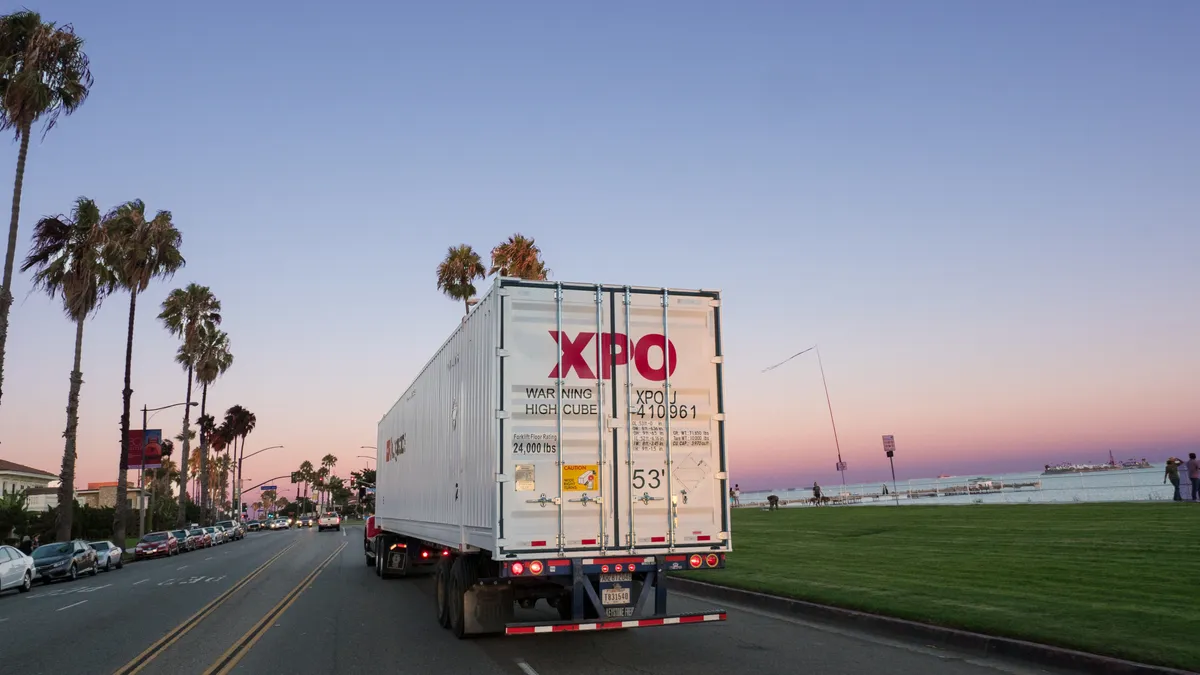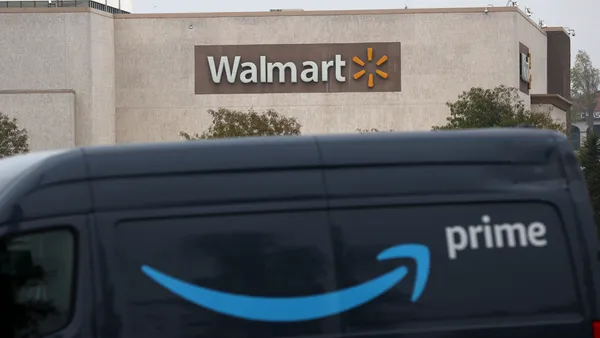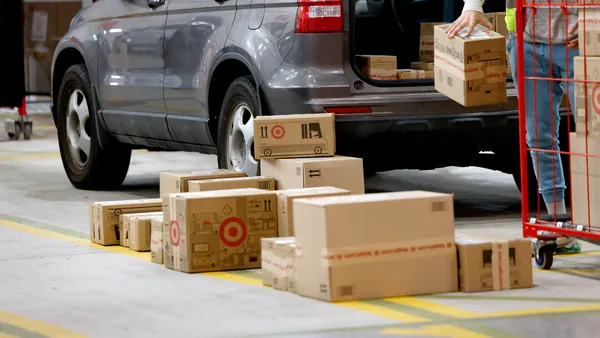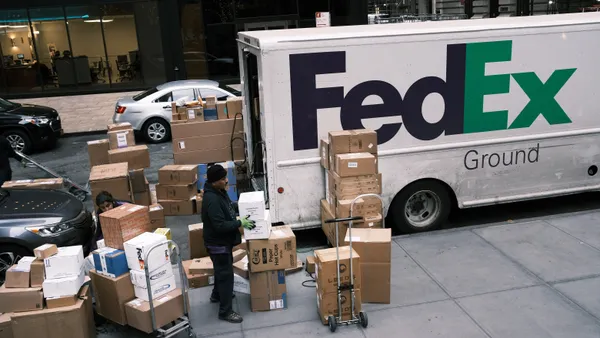Dive Brief:
- Analysis of COVID-19 data helped XPO spot growing coronavirus infections in Georgia and Louisiana before the general public was aware of the trend, according to an XPO white paper.
- In the report, "Essential Support for Essential Workers," XPO updated workers, journalists and investors on the measures the LTL and final-mile carrier has taken to prevent outbreaks of COVID-19 at its workplaces. According to XPO, when it noticed Georgia spiking in positive cases, the company put preventative resources where they were needed the most, based on local infection rates and projections of rates to come. XPO has more than 20 distribution centers in the Atlanta metropolitan area, which the firm said would have helped them absorb workloads if one or several sites had to be closed for cleaning. Such reallocation measures were ultimately not needed, XPO said.
- XPO said it added supplies of cleaning materials, hand-sanitizer stations and "hot wash" stations, where employees can clean their hands with hot water and soap. The 18-page report details everything related to coronavirus that XPO does, from free testing to its electrostatic deep-cleaning procedure, which is done by an external firm at a site after an employee tests positive for the virus.
Dive Insight:
XPO's report details the efforts the international carrier is taking to keep its warehouses, terminals and other workplaces safe and clean. It comes as states, businesses, schools and universities consider returns to normal operations.
Transport and logistics companies never had to make decisions about reopening. They were declared "essential services" by the U.S. Department of Homeland Security. The scramble to keep workplaces and trucks safe and free from the coronavirus began immediately, as medical facilities began reporting cases in the United States and Canada. Companies reached quick agreements with employees — UPS Freight and the Teamsters agreed to pandemic-related accommodations on March 22.
XPO's research also indicates technology is being used as fervently as soap and water, in efforts to prevent spread and avoid hot spots. There is XPO's "risk-mitigation map," a flow chart of what to do and who to contact as facts emerge. The company also stressed that personal protective equipment (PPE) has been provided to workers.
Transport Dive contacted a number of similar-sized fleets about their efforts to control coronavirus spread. Matthew O'Connor, UPS spokesman, said the company communicates with employees regularly about hygiene protocols. The company maintains a website about its coronavirus-related efforts.
Like XPO, UPS has altered operating procedures to allow for social distance protocols, O'Connor said.
"For example, we have added space between work stations inside our facilities and suspended requiring customers to sign for 'signature required' packages," O'Connor said in an email. "We have also modified other protocols involving site access, gatherings of employees, and public interaction at service counters."
Jonathan Lyons, FedEx spokesman, told Transport Dive that the LTL and parcel company provides sanitizer at facilities and promotes social distancing on the job. Lyons said in an email that FedEx has also been disinfecting facilities and vehicles more frequently. And, like XPO, FedEx is temperature-testing employees, guests and vendors prior to entry of FedEx facilities, Lyons said.
As for pay, UPS provides up to 10 days of compensation for any employee who is diagnosed with the virus, or who is required to quarantine, or if a household member is diagnosed with the virus and the employee is required to quarantine, O'Connor said.
That is similar to what XPO offers: The company has "pandemic paid sick leave," which is 80 hours of pay for full-time workers and 48 hours for part-time workers. XPO also guarantees three days of pay if a facility is closed temporarily for cleaning, according to the report.
Fallon McLoughlin, XPO spokesman, would not specify to Transport Dive exactly how much the measures cost, except to say the expenses ran into the millions of dollars.














